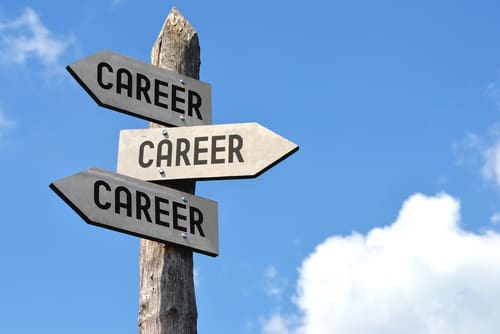
Dear Therapist:
With everything going on right now, I am reevaluating my career. I feel this time at home may be a good time to think about creating a new career path for myself as I’ve been pretty miserable for awhile now. I could use some help with the process and am thinking I would like to work with a Career Coach or a Career Counselor. What’s the difference? Does it even matter?
Sincerely, Looking for Career Direction
This is an excellent question because as you allude to in your question, is there even a difference? Actually there is and it’s a good moment to know what it is so you can decide the type of person who can best help you through your career transition.
Are you looking for help in exploring various industries and thinking about your strengths and weaknesses across each one? Are you interested in creating new materials to help you find a new job, i.e. a cover letter and resume? Are you thinking about ways to hone your social media profiles to support your job search? If any of these steps resonate with you, I believe you are in need of a Career Coach.
A Career Coach works with you to discern what your next job and/or career path will be, either in the same industry or a whole different one. The focus will be on who you are, your strengths and weaknesses, and creating a sense of what you want to bring to the materials you need to create to make yourself not only fit, but also stand out from all the other applicants. Concrete career steps like these are the focus of a Career Coach.
Alternatively, are you feeling stuck in your same job? Do you hate your job, know you really need to move on, but just can’t seem to take the steps? Feelings of anxiety, depression, stuckness, and internalized criticism that are hampering your progress in your career is a place to work with a Career Counselor. It is not about the job process itself, but rather what is happening to keep you somewhere you don’t want to be.
Career Counselors work with you to think about thought patterns, messages, and ideas that your have been given over the course of your lifetime that are operating to keep you immobilized professionally. By looking at these core beliefs you hold and starting to name and then unravel them are keys to becoming unstuck and moving forward to a career you are happy with. Career counseling is often a much more internal process, whereas the coaching process is about the action toward a new job.
Which space are you in? This delineation should clarify the difference for you, as well as provide you with a few questions to ask yourself in order to decide what you need. For more information on Career Counseling, what it is, how it can be approached, and feelings that are associated with difficulty in this area, click here.







